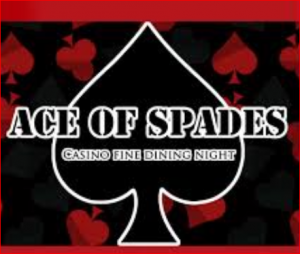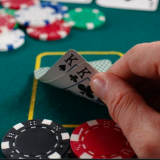Why The Ace of Spades is called the Death Card
The ace of spades earned its name ‘death card’ because it was associated with death. But before we look at the Ace of spades, let us look at the history of playing cards in general.
History of playing cards
While the history of playing cards is quite shadowy, it is believed that the Chinese are the ones who started using paper dominoes as early as the 10
 th century.
th century.
The paper dominoes were part of their recreational games. As countries started trading, paper dominoes spread to Europe. Around the 15th century, only royal families could afford them as they were handcrafted and painted making them expensive.
Over time French manufactures standardised the four playing card suits so that they could manufacture them easily. After the French standardised playing cards, Europe, England, and British colonies increased the usage of playing cards.
In the 19th century, Americans started to produce their own playing cards, modifying them and making them more rounded in the corners and standardising them.
Where the name ‘Dearth Card’ came from
The shape of the Germanic upturned leaf was used by the French to make the cards simpler, the leaf now resembles the modern spade.
The spade was probably associated with dearth because of a number of factors including its name ‘Spade’. Spades are shovels used to dig graves in the American language.
However, it is believed that the name was made more popular during Vietnam was when two American soldiers wrote to a playing card company requesting them to send an entire deck of Ace of spades and nothing else.
Superstitions are believed to have emanated from the two soldiers who asked for this card specifically and it was eventually named the death card.
The soldiers claimed that their opponents which were the Vietnamese feared this card. Americans are believed to have used the card as a weapon to psychologically confuse the Vietnamese. American troops would place them on top of a dead Vietnamese soldier to show them that they were there and that they were coming for others.





















